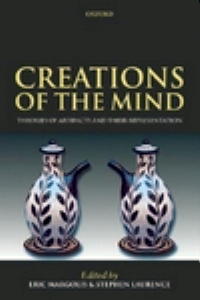 Natural or Artificial? Implications for Science, Religion and Phenomenology [Review of the book, Creations of the Mind: Theories of Artifacts and Their Representation]. PsycCRITIQUES—Contemporary Psychology: APA Review of Books, February 20, 2008, Vol. 53, Release 8, Article 4. Retrieved February 20, 2008 from the PsycCRITIQUES database (http://www.psycinfo.com/psyccritiques/)..
Natural or Artificial? Implications for Science, Religion and Phenomenology [Review of the book, Creations of the Mind: Theories of Artifacts and Their Representation]. PsycCRITIQUES—Contemporary Psychology: APA Review of Books, February 20, 2008, Vol. 53, Release 8, Article 4. Retrieved February 20, 2008 from the PsycCRITIQUES database (http://www.psycinfo.com/psyccritiques/)..
Water is natural, especially if it falls from the sky, but what about distilled water, pure H2O: is that natural or artificial? Are these natural or artificial: landscaping, spider silk, seedless grapes, a suntan, a race horse, cheese, a rock used as a doorstop? Editors Eric Margolis and Stephen Laurence present sixteen chapters written by psychologists, philosophers, and other academics, all trying to understand what artifacts are, how we learn about and understand them, and when artifacts emerged in evolution.
Whether you categorize something as an artifact or as a natural object has consequences for what you think science is about, whether the intelligent design hypothesis makes sense, and whether phenomenology can really get to the essence of a thing. If a feathered wing is considered an artifact rather than a naturally occurring object, that implies an intelligent designer. If scientific categories, of species, for example, are designed for human needs and interests, they are artifacts, not descriptions of how the world really is. If there are mental categories wired into the brain or learned in infancy, then phenomenology is a waste of time. Unfortunately, the editors do not draw out such implications, but the sixteen papers, many presenting original scientific findings, are fascinating in themselves.
